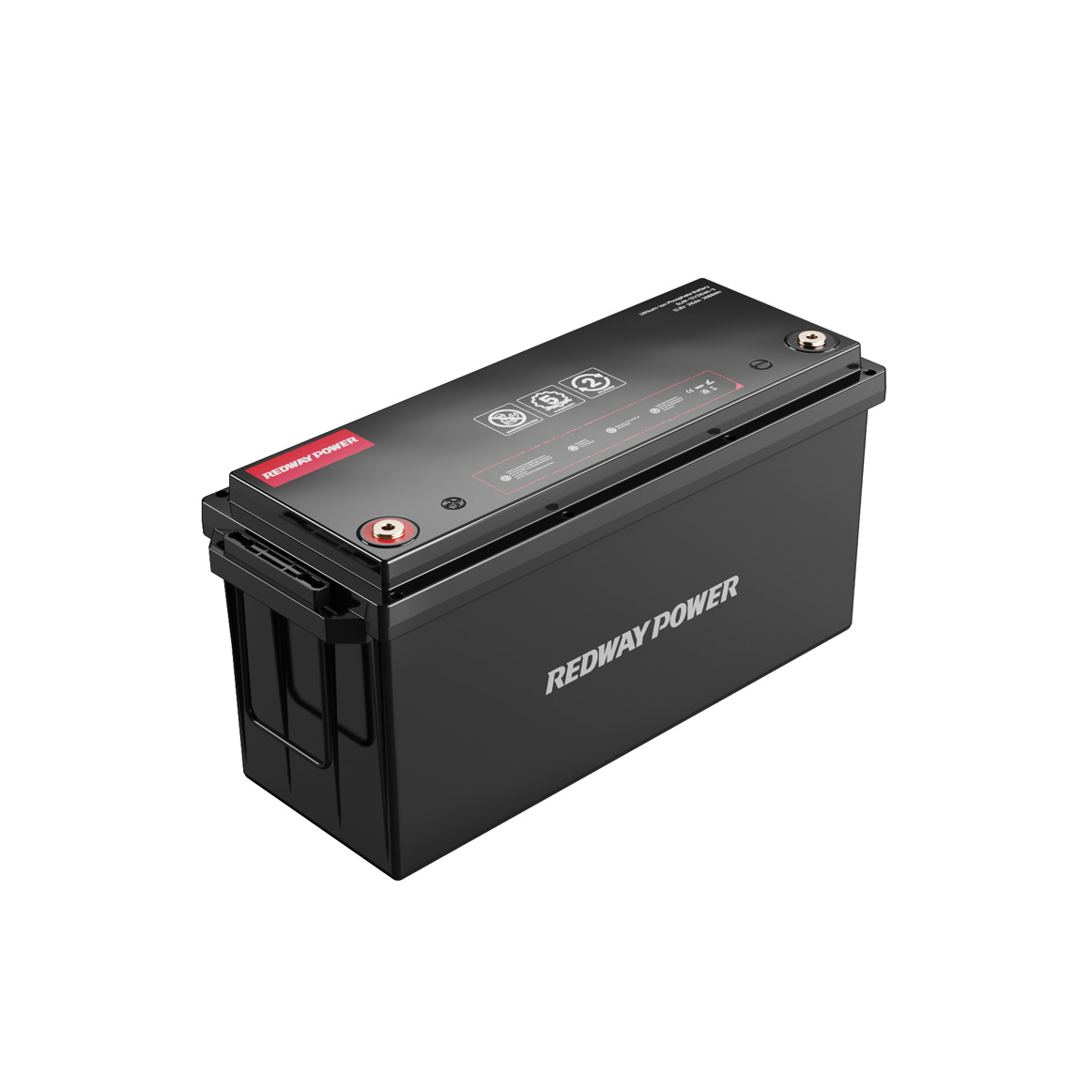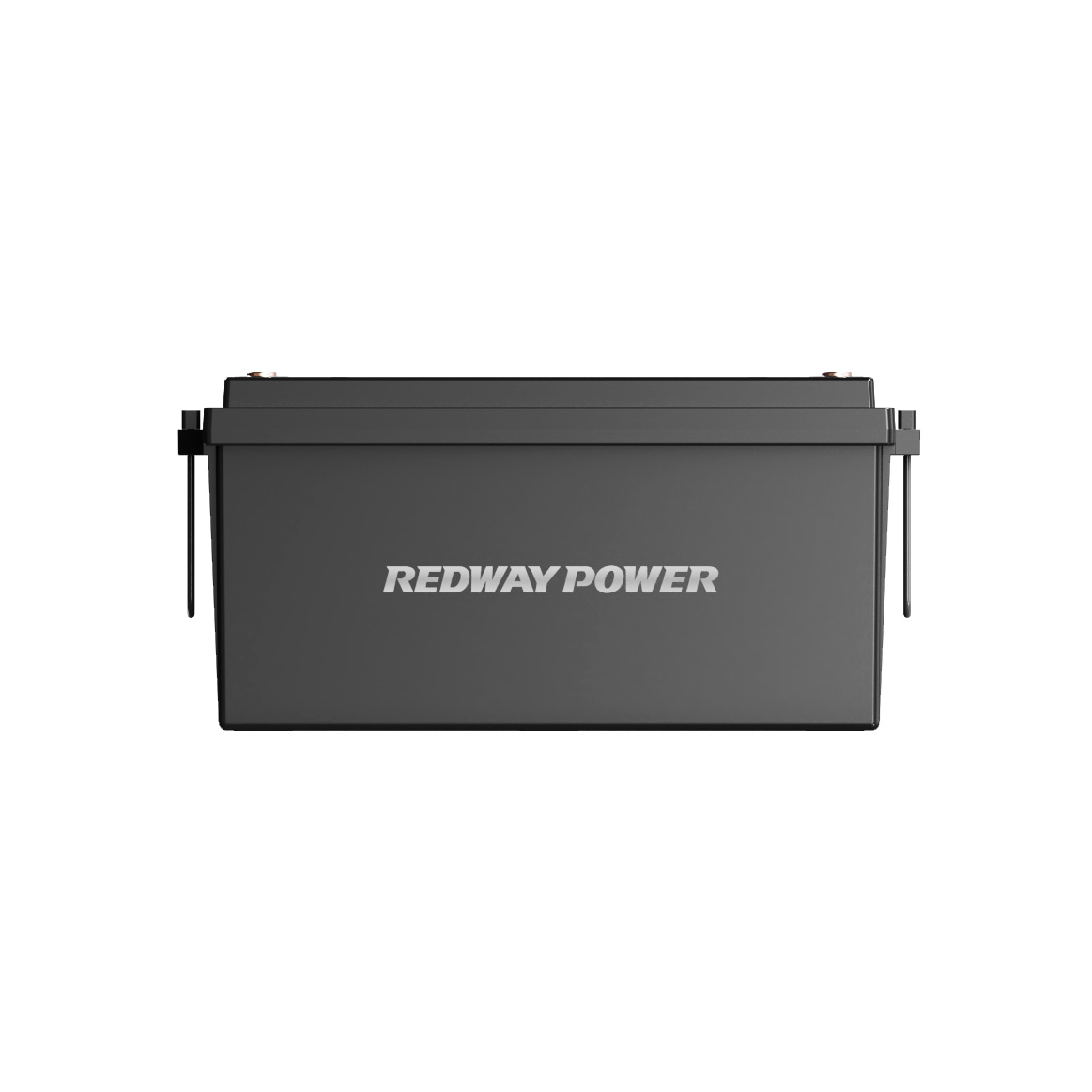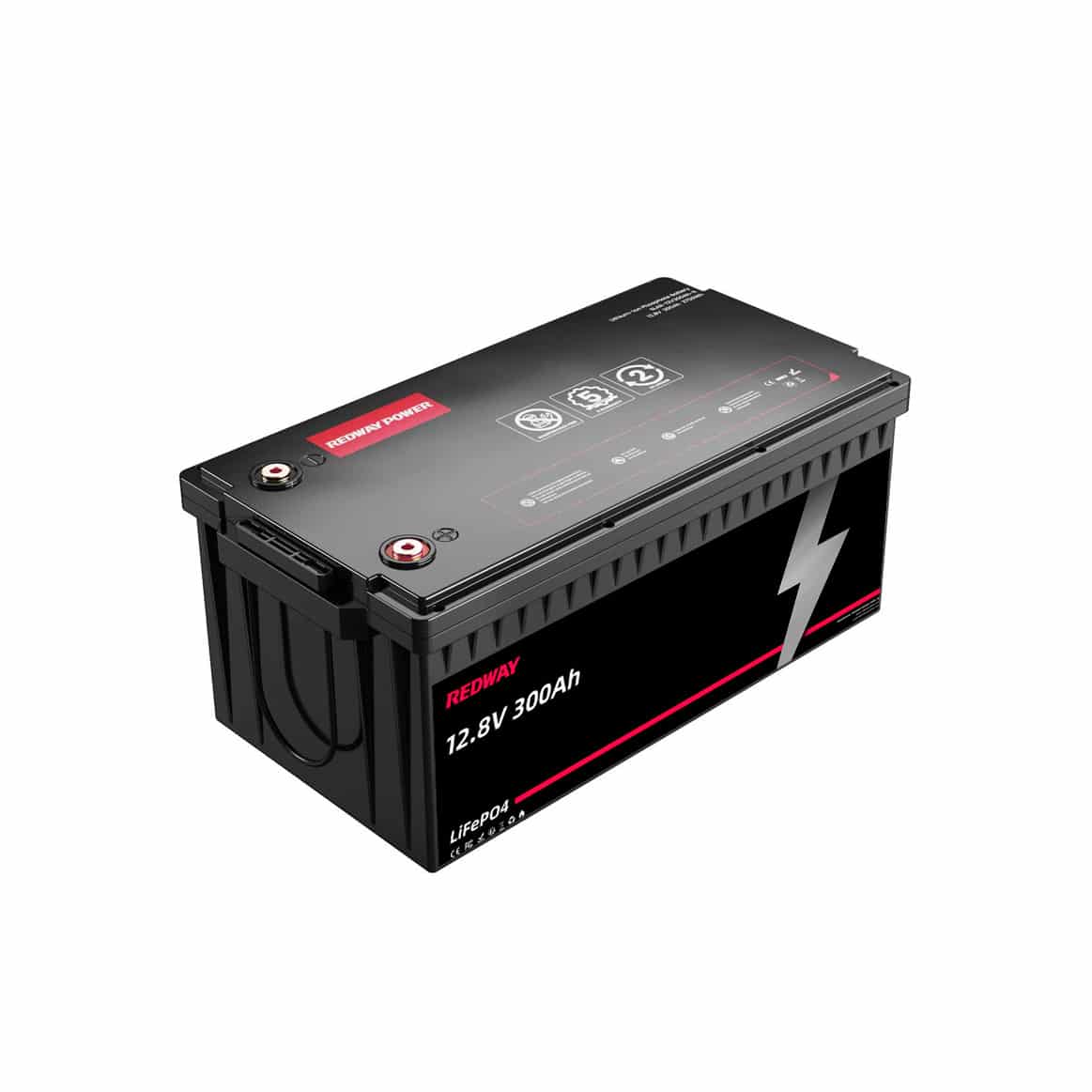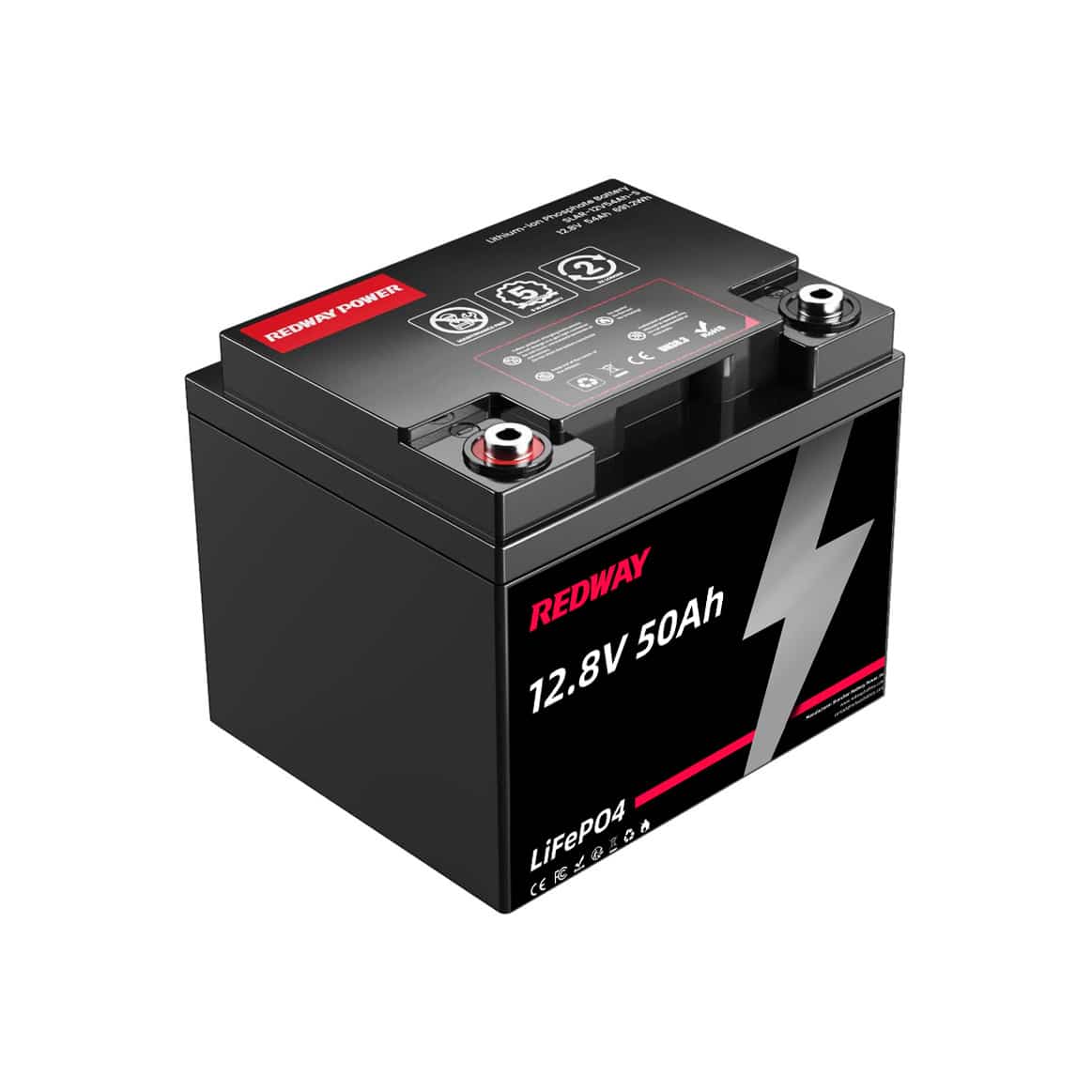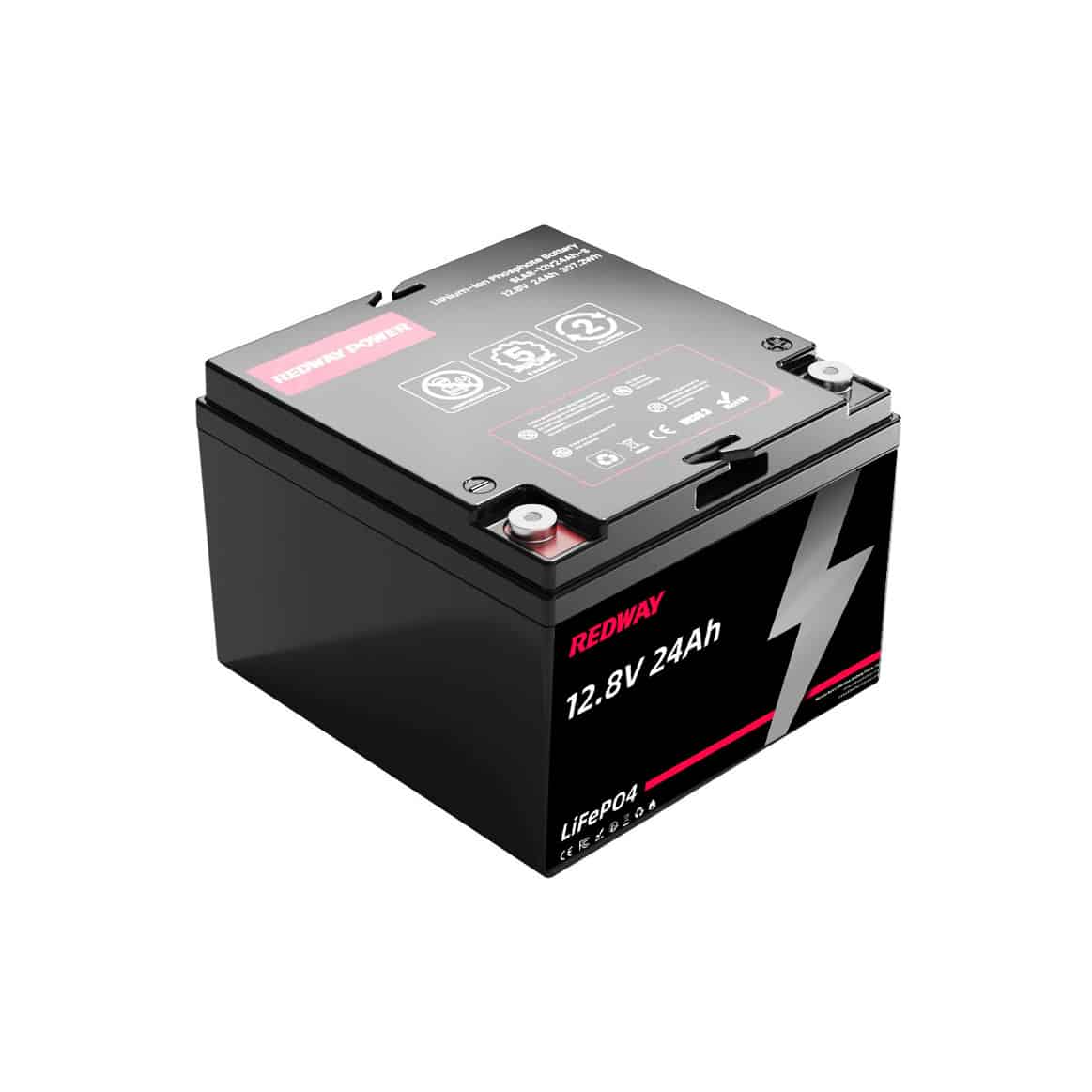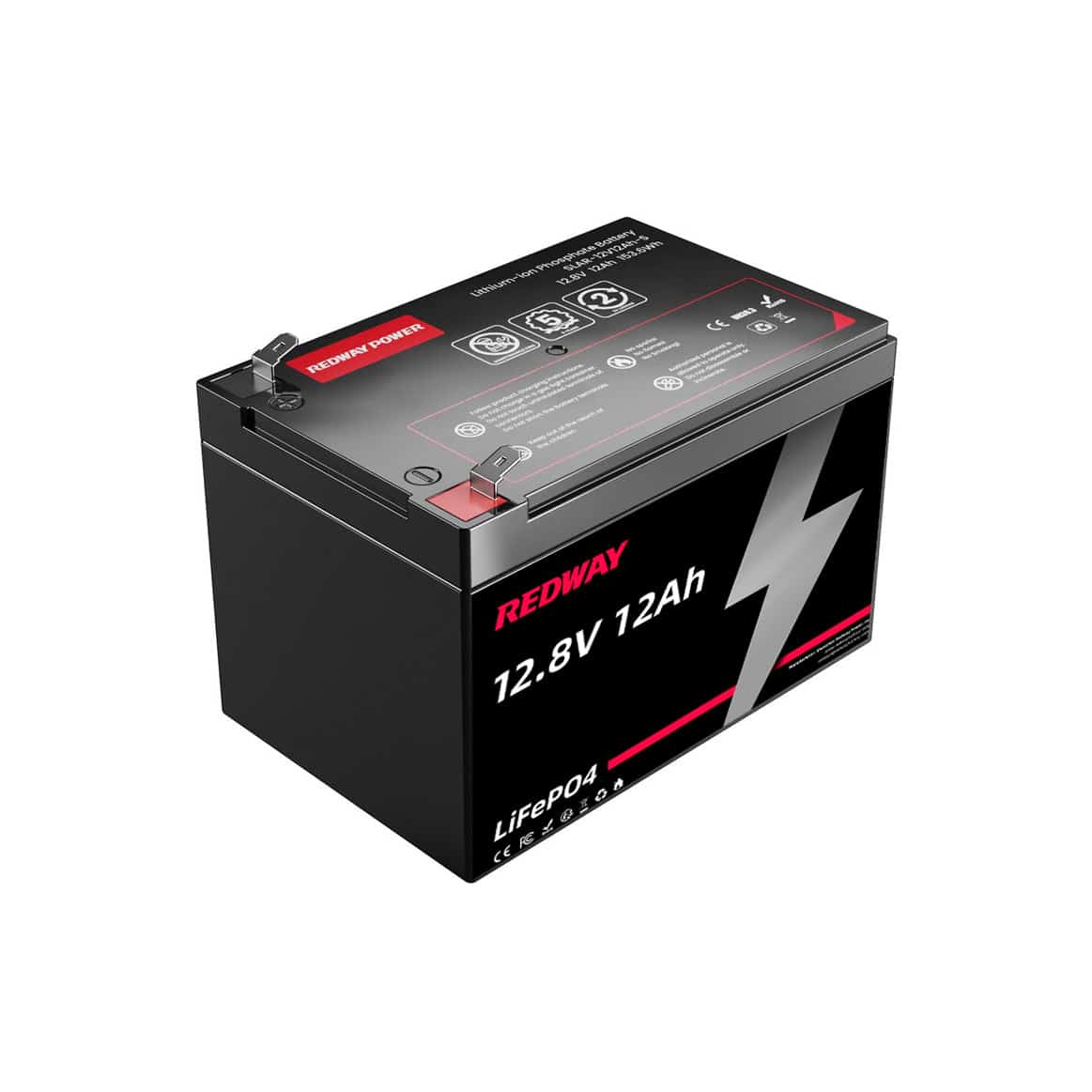Description
The Redway 12.8V 180Ah LiFePO4 battery is engineered for high-capacity energy storage, delivering a robust 2304Wh of power tailored for solar systems, RVs, marine vessels, trailers, and off-grid applications. Designed to meet the demands of modern energy users, this battery combines durability, safety, and intelligent management to ensure dependable long-term performance.
Built with a compact and rugged design, the battery measures 501 × 185 × 242 mm and weighs only 16 kg (35 lbs), making it easy to install in various environments. The IP65-rated ABS shell protects against dust and water, enhancing reliability in harsh conditions.
Safety is paramount with the integrated JBD/DALY Battery Management System (BMS) providing comprehensive protection against overvoltage, undervoltage, overcurrent, short circuits, and extreme temperatures. Optional smart features like Bluetooth, 4G, GPS, WiFi, and LCD display allow for real-time monitoring and control, ideal for advanced energy management.
Supporting a maximum continuous charge and discharge current of 100A and parallel connection of up to six units, this battery offers flexibility and scalability. With a cycle life exceeding 5000 cycles at 80% Depth of Discharge (DOD) and a design life of 10 years, backed by a 3-year warranty and multiple certifications, the Redway 12.8V 180Ah battery delivers safe, efficient, and long-lasting power for diverse energy needs.
Know More
Why Choose a 12V 180Ah Lithium LiFePO4 Battery Factory for Reliable Power?
The 12V 180Ah Lithium LiFePO4 battery is a high-performance, long-life solution ideal for RVs, marine, solar, and off-grid systems. With advanced BMS protection, over 4,000 cycles at 80% depth of discharge, and robust customization from leading factories like Redway Battery, it offers unmatched safety, efficiency, and flexibility for demanding energy storage needs.
What makes the 12V 180Ah Lithium LiFePO4 battery a top choice for modern energy storage?
The 12V 180Ah LiFePO4 battery stands out for its high energy density, lightweight design, and exceptional cycle life. Delivering around 2.3kWh of usable energy, it supports over 4,000–6,000 cycles at 80% DOD, far surpassing traditional lead-acid batteries. With built-in BMS, it ensures safe, stable power for RVs, boats, solar arrays, and backup systems, even in harsh environments.
Chart: Key Features of 12V 180Ah LiFePO4 Battery
| Feature |
Specification/Benefit |
| Chemistry |
LiFePO4 (LFP) |
| Nominal Voltage |
12.8V |
| Capacity |
180Ah (2,304–2,355Wh) |
| Cycle Life |
4,000–6,000+ @ 80% DOD |
| BMS |
Advanced, multi-protection |
| Weight |
~15.6–19.5 kg |
| Operating Temp |
-20°C to 65°C |
| Self-Discharge |
<3% per month |
| Customization |
OEM/ODM, Bluetooth, LCD, etc. |
| Applications |
RV, marine, solar, backup |
| Warranty |
3+ years |
How does the advanced BMS ensure safety and performance?
The integrated Battery Management System (BMS) actively monitors cell voltages, current, and temperature, providing protection against overcharge, over-discharge, overcurrent, and short circuits. Many factories, including Redway Battery, offer intelligent BMS with features like cell balancing, Bluetooth connectivity, and real-time diagnostics, maximizing battery lifespan and operational safety.
What are the key technical specifications of a 12V 180Ah LiFePO4 battery?
A typical 12V 180Ah LiFePO4 battery features a nominal voltage of 12.8V, 180Ah capacity, and energy output around 2,300Wh. Weighing approximately 16–20kg, it offers continuous charge/discharge currents up to 100A, operates from -20°C to 65°C, and supports parallel or series configurations for higher capacity or voltage. Many models include LCD displays, IP65-rated cases, and optional smart features.
Chart: Technical Specifications of 12V 180Ah LiFePO4 Battery
| Parameter |
Value |
| Nominal Voltage |
12.8V |
| Capacity |
180Ah |
| Energy |
2,304–2,355Wh |
| Max Charge/Discharge |
100A (continuous) |
| Dimensions (L x W x H) |
~355 x 175 x 188 mm |
| Weight |
15.6–19.5 kg |
| Cycle Life |
4,000–6,000+ cycles @ 80% DOD |
| Operating Temp |
-20°C to 65°C |
| Self-Discharge |
<3% per month |
| Communication |
Bluetooth, LCD, CAN, etc. |
Which applications and industries benefit most from this battery?
12V 180Ah LiFePO4 batteries are widely used in RVs, marine vessels, solar energy storage, off-grid cabins, emergency backup, medical equipment, and telecom towers. Their deep-cycle performance, lightweight build, and long lifespan make them ideal for mobile, remote, and high-demand scenarios where reliability and efficiency are critical.
How do customization and OEM/ODM options add value for buyers?
Factories like Redway Battery offer extensive customization, including branding, BMS programming, communication protocols (Bluetooth, CAN, RS485), special connectors, and even heating systems for cold climates. OEM/ODM clients can tailor capacity, casing, and features to fit unique project needs, ensuring seamless integration and market differentiation.
What certifications and quality standards should buyers expect?
Top factories provide batteries certified to IEC, UN38.3, MSDS, CE, and often UL standards, ensuring global compliance for safety, transport, and environmental requirements. Always request certification copies with QR verification codes. Redway Battery’s products are manufactured in ISO-certified facilities, guaranteeing consistent quality and reliability.
How does the 12V 180Ah LiFePO4 battery compare to lead-acid and other chemistries?
LiFePO4 batteries offer much longer cycle life, lighter weight, higher usable capacity, and superior safety compared to lead-acid and many other lithium chemistries. They have no memory effect, minimal self-discharge, and maintain high efficiency (>96%) across a wide temperature range, making them more cost-effective over time.
What is the process of ordering from a 12V 180Ah LiFePO4 battery factory?
Ordering from a factory like Redway Battery involves specifying technical requirements, customization needs, and order quantities (often 50+ units for OEM). Factories provide datasheets, samples, and flexible shipping options (FOB, CIF, EXW). Lead times are typically 20 days, with global delivery and after-sales support.
How does Redway Battery ensure quality and reliability in production?
Redway Battery employs advanced manufacturing, rigorous cell selection, and multi-stage testing. Each battery undergoes strict quality control, including performance, safety, and environmental tests. Their factories in Dongguan and Guangdong offer OEM/ODM services, fast delivery, and technical support, making them a preferred partner for B2B and wholesale buyers.
What are the cost and ROI benefits of choosing a 12V 180Ah LiFePO4 battery?
Despite a higher upfront cost than lead-acid, the 12V 180Ah LiFePO4 battery delivers lower total cost of ownership thanks to its long cycle life, minimal maintenance, and superior efficiency. Its reliability reduces downtime and replacement frequency, maximizing ROI for both personal and commercial users.
Redway Battery Expert Views
“At Redway Battery, we engineer every 12V 180Ah LiFePO4 battery for peak reliability, safety, and customization. Our advanced BMS, rigorous QC, and flexible OEM services ensure our partners receive solutions tailored for demanding applications, whether for marine, RV, solar, or industrial backup. We’re committed to powering the future of energy storage.” – Redway Battery Technical Expert
Conclusion
The 12V 180Ah Lithium LiFePO4 battery is the ultimate choice for modern energy storage, combining high capacity, long cycle life, and advanced safety features. With leading factories like Redway Battery offering deep customization, global certifications, and robust support, these batteries empower RV owners, boaters, solar users, and OEMs to achieve reliable, efficient, and future-proof power.
FAQs
What is the typical warranty for a 12V 180Ah LiFePO4 battery?
Most factories, including Redway Battery, offer warranties of 3 years or more, with extended support for OEM clients.
Can I use this battery for both series and parallel connections?
Yes, most 12V 180Ah LiFePO4 batteries support series and parallel configurations for higher voltage or capacity.
Is the battery suitable for cold climates?
Absolutely. With operating ranges down to -20°C and optional heating systems, these batteries perform reliably in harsh conditions.
Does Redway Battery provide OEM/ODM customization?
Yes, Redway Battery specializes in tailored solutions, including branding, BMS programming, and smart features.
How long will a 12V 180Ah LiFePO4 battery last?
With over 4,000–6,000 cycles at 80% DOD, these batteries can last 10 years or more with proper care.


